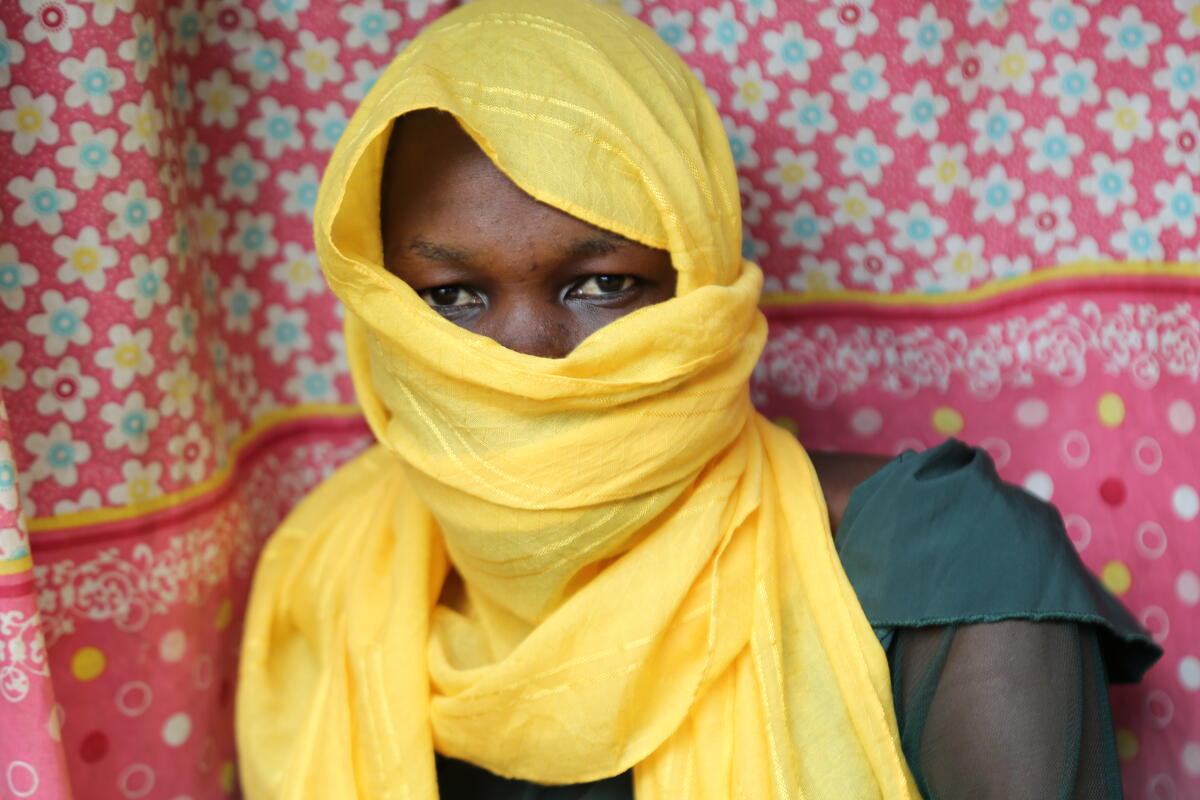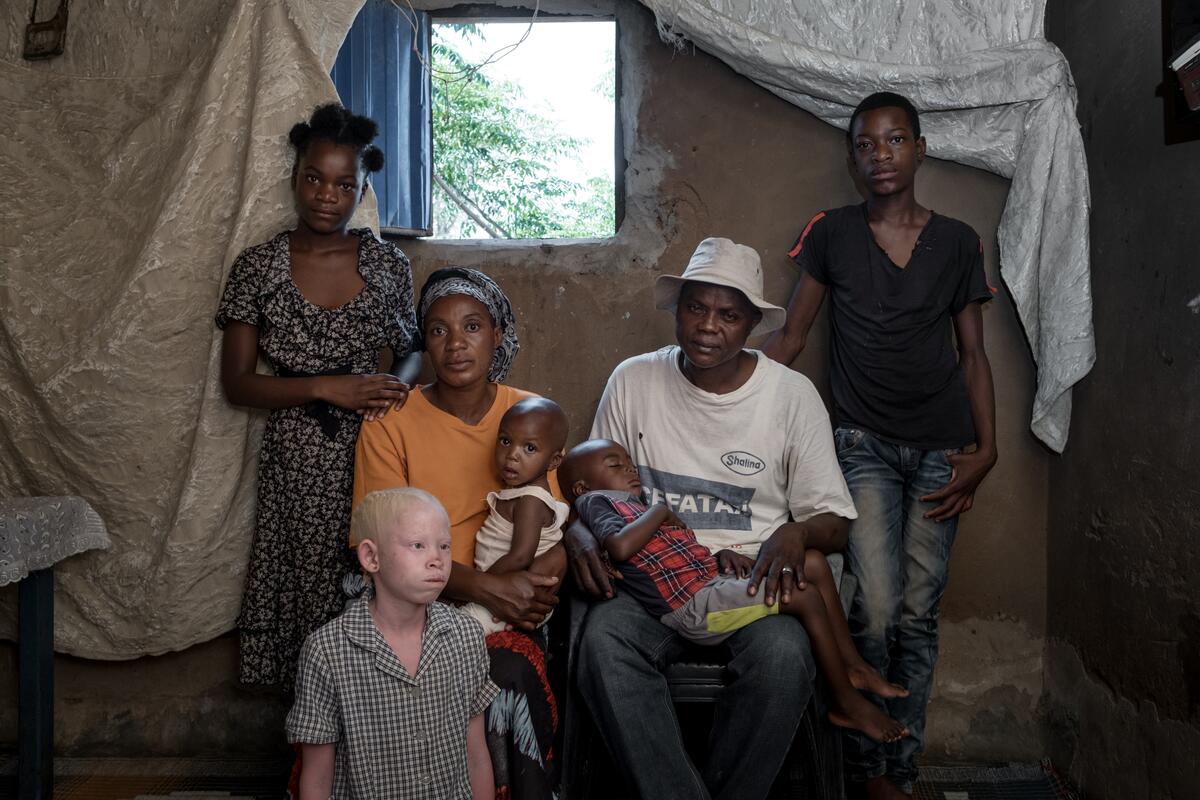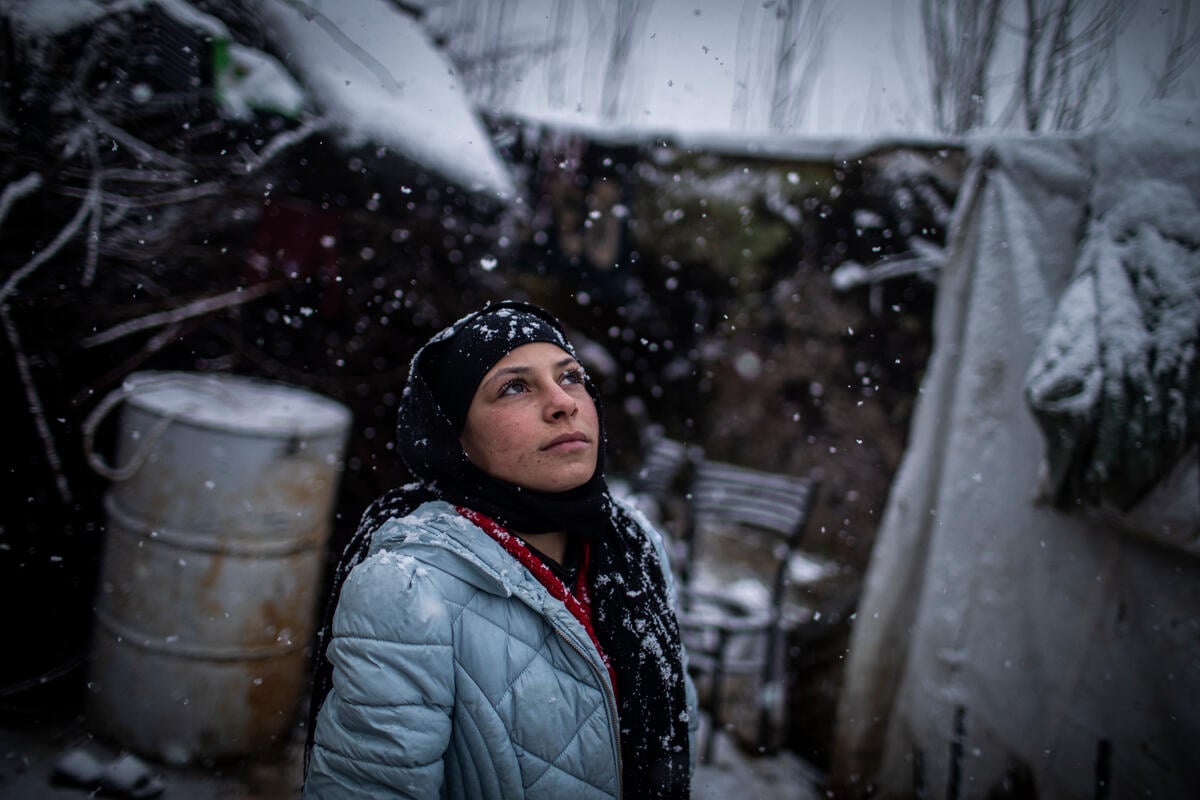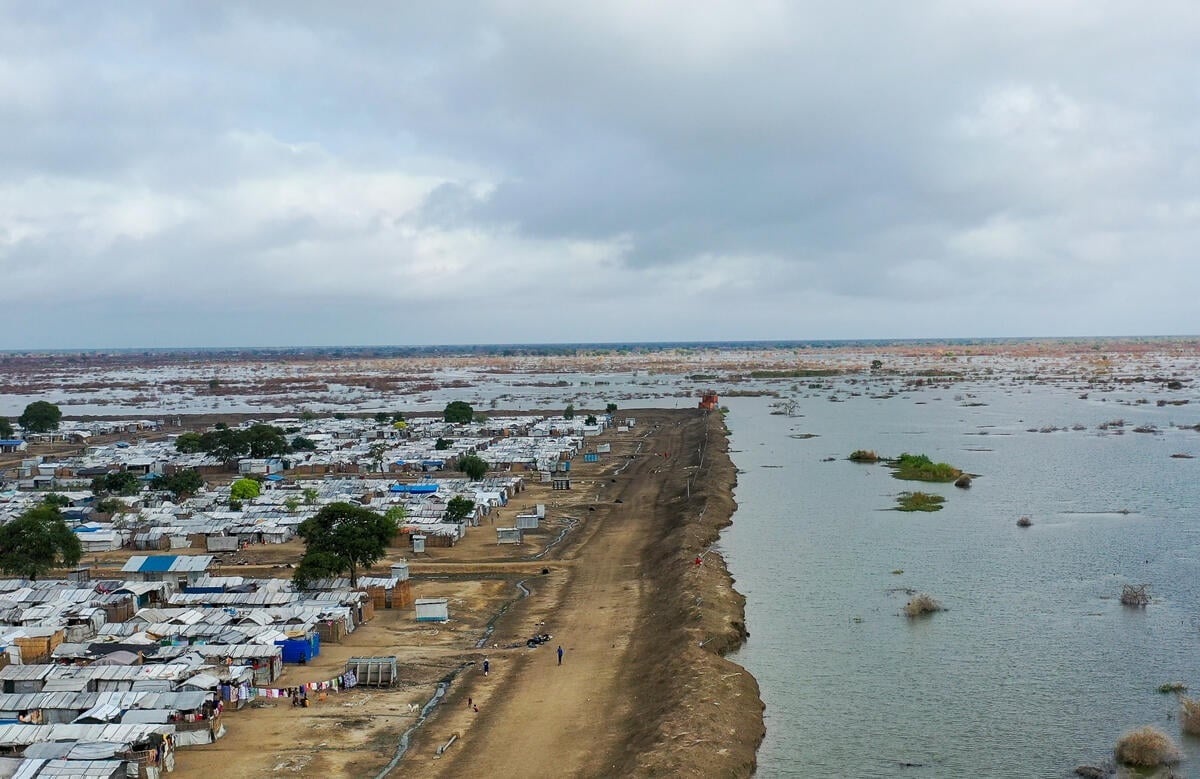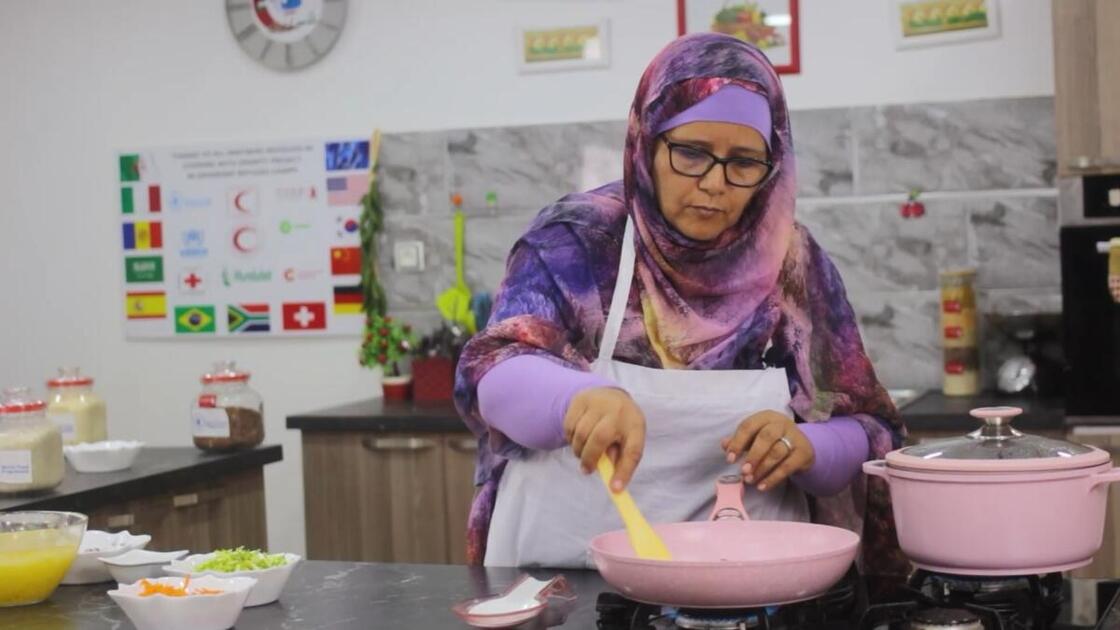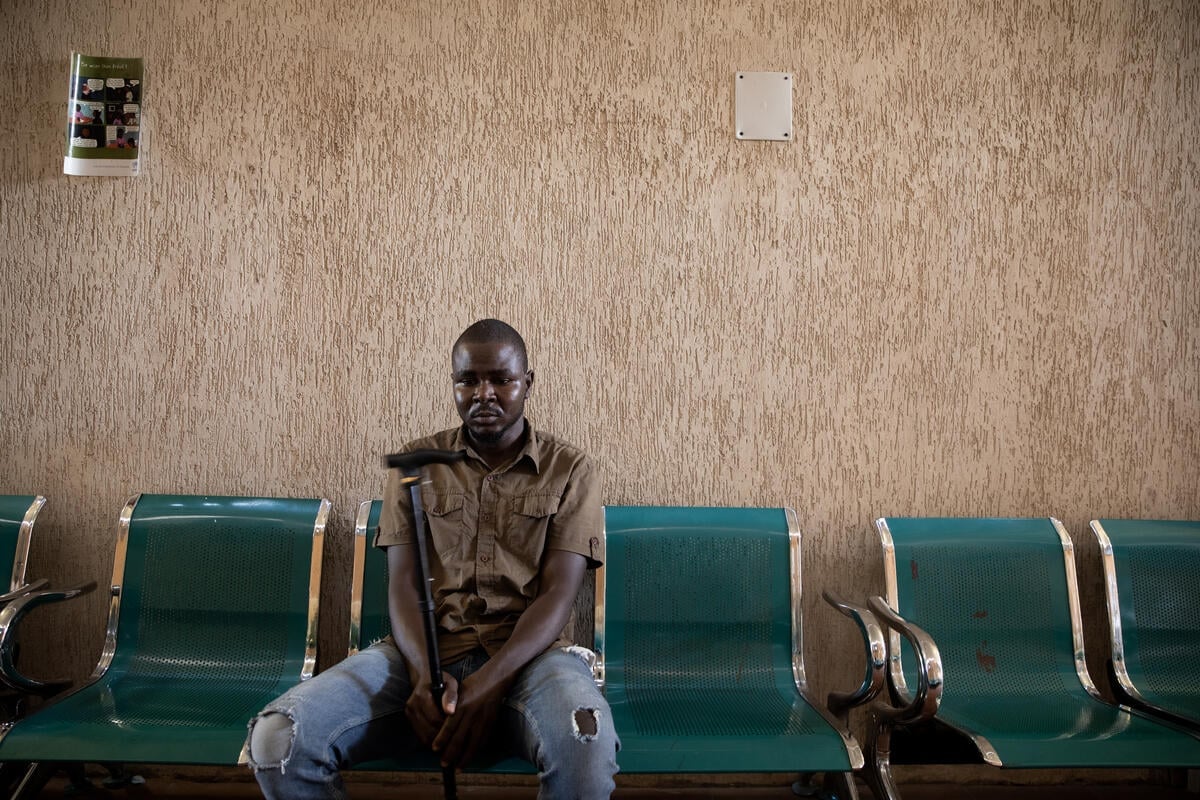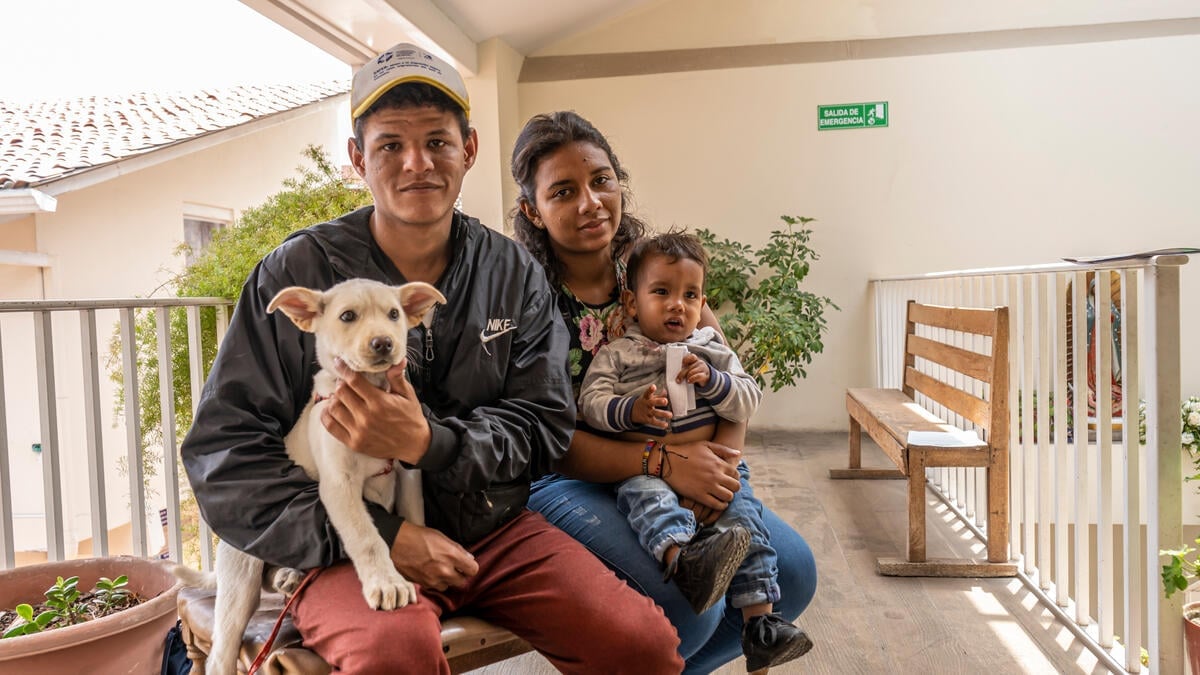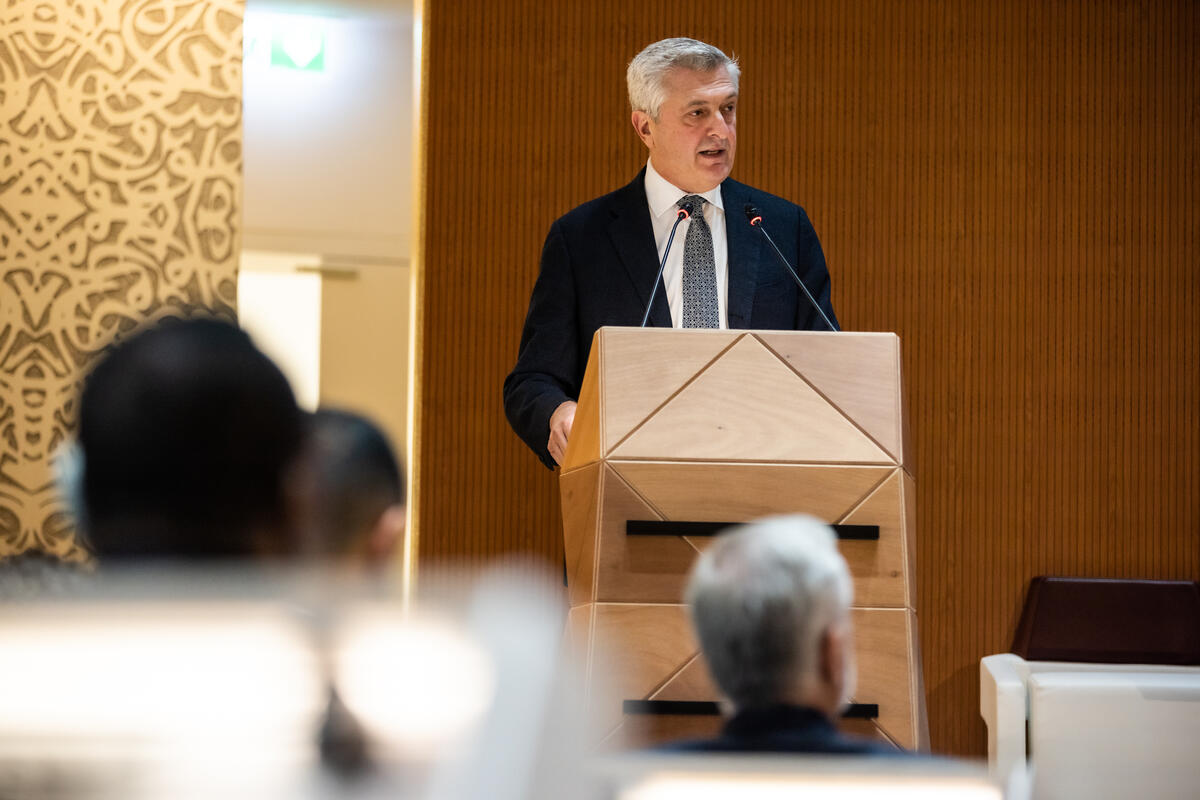UNHCR, WFP join forces to reach thousands of refugees and asylum-seekers in Libya with emergency food aid
UNHCR, WFP join forces to reach thousands of refugees and asylum-seekers in Libya with emergency food aid

TRIPOLI/TUNIS – UNHCR, the UN Refugee Agency, and the World Food Programme, WFP, are joining forces in Libya in a project that will aim to reach up to 10,000 food insecure refugees and asylum seekers with emergency food aid this year.
The partnership was launched in recognition of the severe socio-economic impacts of the COVID-19 pandemic in Libya as well as the effects of the ongoing conflict. Nutritious food supports a healthy immune system, which is even more critical in challenging times of a global pandemic. Regular food support helps to meet this basic need and allows for limited income to be used for other needs.
Most refugees and asylum seekers in Libya have been unable to find any daily work to support themselves as curfews have been introduced and food prices and the cost of basic goods have dramatically risen. The cost of a minimum expenditure food basket that would meet basic needs has increased by 24 per cent since March. Many refugees say that they are only able to afford to eat one meal a day.
A quick needs assessment conducted by WFP between 30 May and 3 June 2020, carried out via telephone interviews with 10% of refugees proposed for assistance, found that on average, one out of two respondents had poor or borderline poor food consumption. A majority showed significantly higher frequency of using negative coping strategies such as reducing the number of meals per day or limiting the size of meal portions. In the past 30 days, 77 per cent of respondents could not access supermarkets, and 70 per cent had no money to buy food.
“Every day, I am afraid of death because of hunger,” a respondent told WFP. “I sleep on mats. There are many shops that I want to work in but there is no work. There is nothing in my house other than bread and tea.”
“It is imperative that we hear these needs and support those most vulnerable,” said Samer AbdelJaber, Country Director and Representative of WFP in Libya. “Access to nutritious food is a right. UNHCR and WFP in Libya have worked together previously in times of crisis in the country, when the intensification of conflict left people of concern with no access to food. Now, with the added challenge of COVID-19, we are coming together to ensure support to food insecure refugees who are fully reliant on humanitarian assistance for basic needs.”
Among those who will be assisted under the project are refugees and asylum seekers recently released from detention centres, with limited means of supporting themselves. Others will include refugees in urban settings facing severe challenges in accessing food.
“The help we’re providing under this project has come at a critical time and will be a lifesaver for some of the most vulnerable refugees and asylum seekers in urban areas,” said Jean-Paul Cavalieri, UNHCR’s Chief of Mission in Libya. “Most relied on daily labour, but this work has dried up because of COVID-19 movement restrictions. They are living a hand-to-mouth existence and finding it very hard to feed themselves. In addition, as the UN continues to call for the orderly release of refugees and migrants from arbitrary detention, it is important that whenever the authorities release people from these centres, we can assist them in urban settings.”
The first distribution of food assistance began yesterday (Monday 15 June) at UNHCR’s registration centre in Serraj, Tripoli. Some 2,000 refugees and asylum seekers will be reached in the pilot phase.
The micronutrient-dense, ready-to-eat emergency food packages, providing enough food for one month, include hummus, canned beans, canned tuna, halawa, and date bars which cover 53 per cent of the daily caloric requirement of a healthy person (around 1,100 kilocalories).
WFP and UNHCR staff will distribute the food packages through to the end of the year, ensuring COVID-19 precautionary measures, such as personal protection equipment, social distancing, disinfection and enhanced crowd controls, are in place for the distributions.
This innovative partnership will also go beyond emergency food support, extending to technology services which facilitate communication and exchange of information. The WFP-led Emergency Telecommunications Sector will be providing connectivity services to a UNHCR Community Day Centre in Tripoli to help refugees connect to their loved ones and communities.
UNHCR, the UN Refugee Agency, leads international action to protect people forced to flee their homes because of conflict and persecution. We deliver life-saving assistance like shelter, food and water, help safeguard fundamental human rights, and develop solutions that ensure people have a safe place to call home where they can build a better future.
Follow us on Twitter @UNHCRLibya and on Facebook
The United Nations World Food Programme is the world’s largest humanitarian organization, saving lives in emergencies, building prosperity and supporting a sustainable future for people recovering from conflict, disasters and the impact of climate change.
Follow us on Twitter @WFP_MENA @SamerWFP
For more information please contact
UNHCR
- Tripoli: Caroline Gluck [email protected] +218 91000 7195
- Tunis: Tarik Argaz [email protected] +216 299 61295
- Geneva: Charlie Yaxley [email protected] +41 79 580 8702
WFP
- Tunis/Tripoli: Flavia Brunetti [email protected] +216 58558309
- Cairo: Abeer Etefa [email protected] +201 0666 3435 2
NOTES FOR EDITORS:
Broadcast quality b-roll available for download here: https://media.unhcr.org/CS.aspx?VP3=SearchResult&VBID=2CZ7RBZG5DSH


